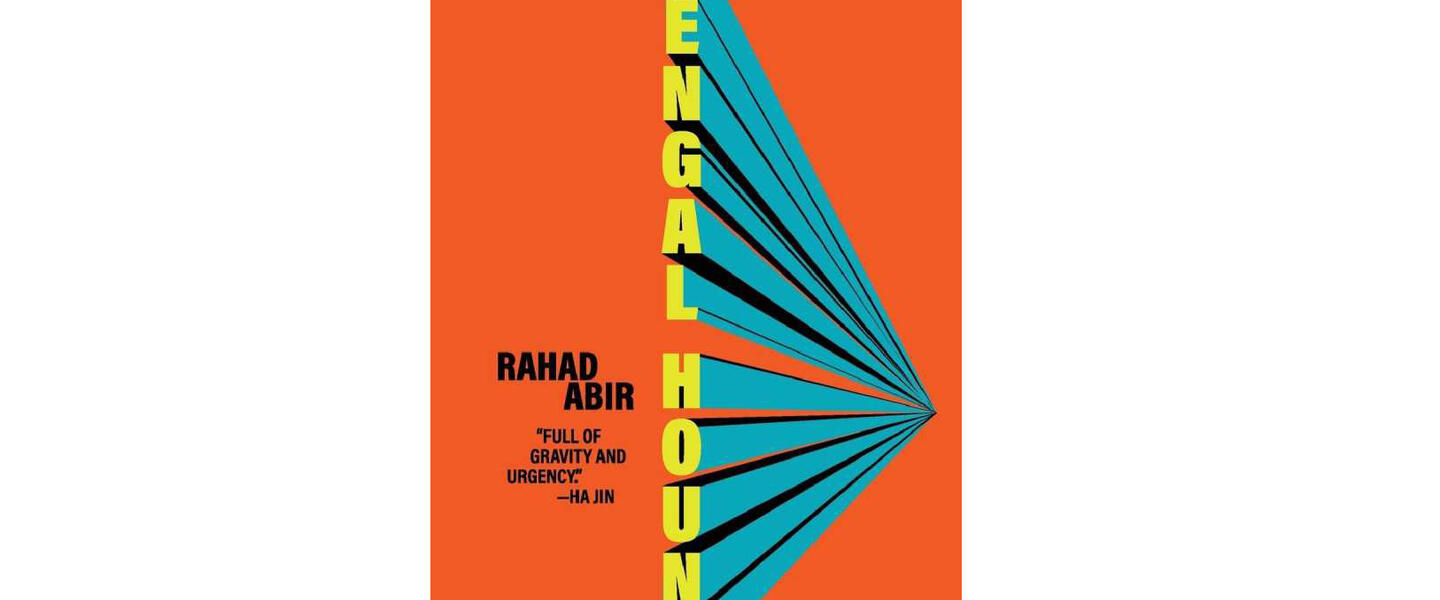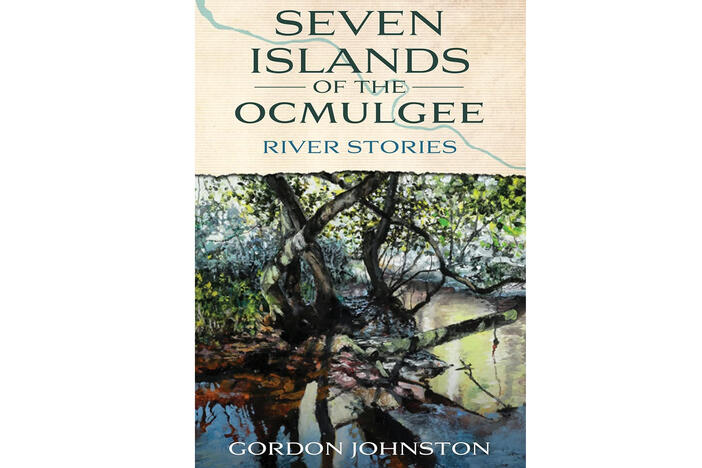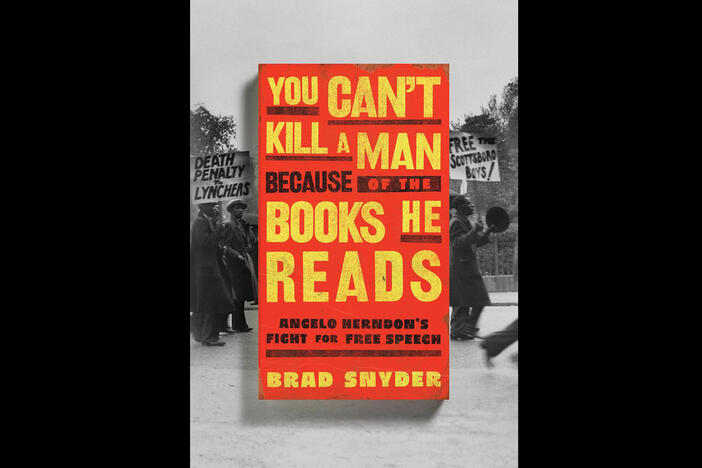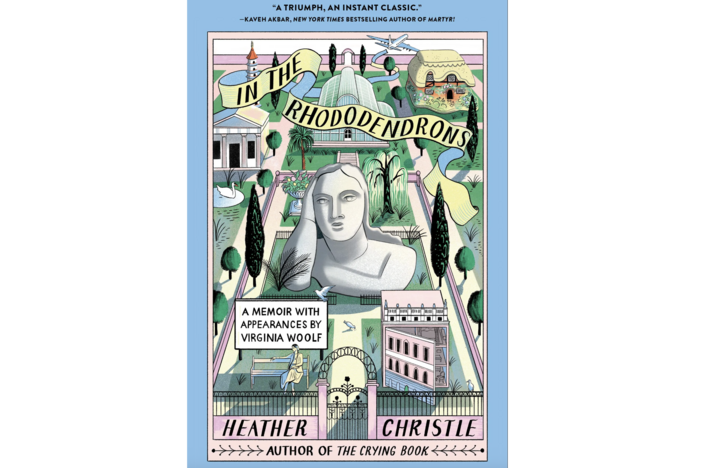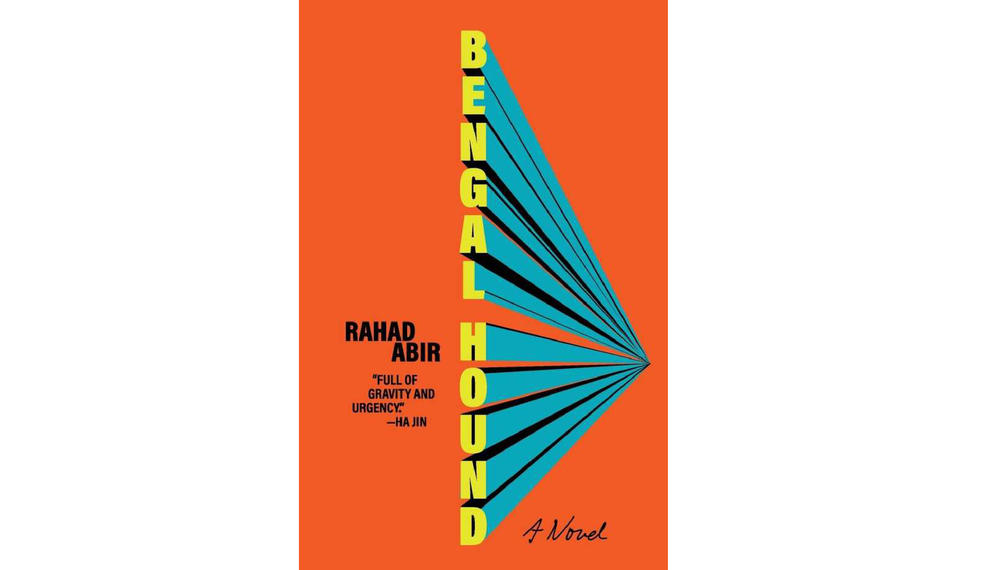
Section Branding
Header Content
Rahad Abir's Bengal Hound: A Novel
Primary Content
A city is hellbent on revolution. Passionate and impetuous, Shelley is a university student at a time of political discord in Dhaka in the late 1960s. Frustrated by the oppression of West Pakistani rulers, the Bengali people are rising up, taking Shelley with them. As he is forced to navigate the chaos of an uprising, where his every choice and action weighs heavy with consequence, Shelley's life is thrown further into disarray when he elopes with his childhood sweetheart.

Peter Biello: Coming up in this episode.
Orlando Montoya: I'm not opposed to talking to inanimate objects. I mean, I talk to plush dolls sometimes. They don't talk back, fortunately.
Rahad Abir: Now, my question is, what would someone do if your dream is shattered? If your life is upside down? Normally, what happens then you stop living in the real world.
Orlando Montoya: And that, Peter, is Chapter 4 of a 13-chapter novel.
Peter Biello: Okay. Wow. So main character dies pretty early in the book. So what's the last two thirds?
Orlando Montoya: This podcast from Georgia Public Broadcasting highlights books with Georgia connections, hosted by two of your favorite public radio book nerds, who also happen to be your hosts of All Things Considered on GPB radio. I'm Orlando Montoya.
Peter Biello: And I'm Peter Biello. Thanks for joining us as we introduce you to authors, their writings, and the insights behind the stories mixed with our own thoughts and ideas on just what gives these works the Narrative Edge. All right, Orlando, I am ready for another book. What do you have?
Orlando Montoya: Well, today I have a work of historical fiction by a writer who lives in Alpharetta. This is his first novel, and it's set in Bangladesh, clear across the other side of the world, in the year 1968. The book is Bengal Hound by Rahad Abir. And I just devoured this book. I could not stop reading it. I finished it in record time. It's a love story set amid sweeping historical change — change that I didn't know about.
Peter Biello: What change are we talking about? What was going on in Bangladesh in 1968?
Orlando Montoya: Well, Bangladesh won its independence from Pakistan after a brutal nine-month war in 1971. So this book is set in the years before that war, when Bangladesh was known as East Pakistan and there was a movement going on for independence. But one thing I like about this novel is it's not really about these events. It's the love story between two main characters, and I'm going to introduce them to you now. One is Shelley. He's 17. I think, you know, he kind of — he doesn't exactly spell it out. But based on the numbers, I think he's 17. Shelly is a writer who lives in Dhaka, and his love interest is Roxana, who's 12 years old, a childhood sweetheart from their shared hometown in a small village. And she's arranged to be married to a banker whom she does not want to marry. And so she and Shelley decide to run away. They run away in a boat. They run away on a train to Dhaka, but their romance is doomed.
Peter Biello: Okay, I'll ask about why their romance is doomed in a minute. But what about their ages 17 and 12? Was — was this the custom of the time and place, to be married so young?
Orlando Montoya: Well, according to a 2016 World Bank brief — and I think this is the first time and only time I'm going to say World Bank, yeah, on the Narrative Edge podcast. But it's — it's still fairly common for women in Bangladesh to marry before their 18th birthday, a product of social and economic factors. But I'll remind you that Shakespeare's Juliet was 13 and Romeo was 16 or 17, and their romance also was doomed.
Peter Biello: Okay, there is precedent in literature. And so why is their romance doomed?
Orlando Montoya: Well, Shelley is Hindu, Roxana is Muslim. Full stop. They cannot get married. So when they go to the marriage officer, Shelley has to convert to Islam. And that's just a matter of saying, you know, there is no God but Allah. Mohammed is his prophet, sort of perfunctory. He'll take care of the circumcision part a little bit later, he says.
Peter Biello: He says.
Orlando Montoya: And neither, neither of them seem very religious, however, nor very political. As a matter of fact, I think later in the novel, Shelley is described as — as an atheist. But they get married. These are the happiest few days of the book. They're on the run. They're having so much fun. They're in Dhaka, staying at a friend's house to avoid being caught. They're taking in the sight of the city. They're taking in the food. But it's not long before bad things happen.
Peter Biello: Bad things happen. What happens?
Orlando Montoya: Bad things! Shelley is arrested for marrying Roxana, and they are separated. Roxana is sent back to their village. And prison is just a horrible place for Shelley. It's dank. There's torture going on in the background. He meets bandits. They're all kind of stories. But he gets out by promising, you know, with his hands behind his back, saying never to see Roxana again. And we know how that's going to go, right?
Peter Biello: No way. No way is he going to do that. The novel would have ended too soon.
Orlando Montoya: Yes, but. So he bolts back to their village and find Roxana is married off to a rich old guy who paid her family a fat dowry. And a few days or weeks later, again, you know, time in these novels is kind of hazy. But, a very short time later, Shelley is back in Dhaka and we find out that Roxana is dead. He gets a letter from her. Saying that she's sick. She's not taking her medicine. What's the point of living without him? And that, Peter, is Chapter 4 of a 13-chapter novel.
Peter Biello: Okay. Wow. So main character dies pretty early in the book. So what's the last two thirds?
Orlando Montoya: So Roxana doesn't leave the book. She comes back. But before I get to how she comes back, I want you to hear the author Rahad Abir talking about how he modeled the character Roxana.
Rahad Abir: In the novel, Roxana is one of the main female protagonists. I modeled her after my grandmother's sister. This girl, my grandmother's sister, she ran away with her boyfriend on her wedding day. And this was back in the ... in the '60s. She was subsequently murdered by her family members. The sad part is, no one knows anything: how she was killed and where she was buried. The family lore says she was killed and then her body was thrown into the river. That's it. I don't — no more information. I asked my grandmother about it and every time I ask about this, she just goes quiet. And I know she's traumatized about this, but no, nothing. Nothing more. I was haunted by this murder. I mean, it's been a long time. I still — I want to know more, but, I get nothing.
Peter Biello: Wow. I was kind of hoping he would say that she had faked her death to run away, but nah. It seems like. seems like it's an actual, real death. Really, really tragic.
Orlando Montoya: A lot of tragedies in that time.
Peter Biello: And. Okay, so that's the model for Roxana. Who's the model for Shelley?
Orlando Montoya: Well, Shelley is a writer in the book, and of course, for Rahad Abir is a writer. So I asked him if — if he was the model for Shelley, and he said it could be him, but it also could be any number of other characters from Bengali literature which he talked about and I didn't get much into. So yeah, there's the — there's the models for the two main characters. I should say. Shelley is named after the British Romantic poet Percy Shelley, if anybody knows him.
Peter Biello: And so you mentioned that Roxana comes back into the story. How did she come back?
Orlando Montoya: So, as I mentioned, Shelly returns to Dhaka, devastated. His life goes on to some degree. His work continues. There's protests going on. He meets people, and there's a lot of stuff going on in this section of the book. But he commissions a small statue based on a photograph of Roxana, and the statue comes into his house. Strange things start happening with the statue. The statue starts talking and Shelley starts talking to it. And so now we have genuine magical realism on our hands.
Peter Biello: Okay. And how do you feel about that?
Orlando Montoya: I like it. I'm not opposed to talking to inanimate objects. I mean, I talk to plush dolls sometimes they don't talk back, fortunately. I sort of take this as a literary device for the ideas of longing or remembrance. So just to let you know what's happening in this part of the book, as I said, he's trying to move on with his life. Things are swirling around him. Protests for the revolution. Friends are being shot and killed by the military. Another friend falls into a severe depression. She starts acting very strangely. And characters that I haven't mentioned have various problems. So Shelley takes to drink and here's the statue saying everything's going to be okay. I mean, if one of your deceased relatives could come back and talk to you through a statue, I mean, wouldn't you — wouldn't you listen to it?
Peter Biello: I would be. Well, here's the thing: Yes, I think so, but only if I were also convinced that other people could see the statue talking. I'm wondering if that's the case in this book. Like, is it, like, literally real that the statue is talking, or is he losing his mind?
Orlando Montoya: He's losing his mind. I'll let the author explain.
Rahad Abir: In Bengal Hound, all the characters — they all are sufferers. The political situation, the partition and in their personal lives, they all are sufferers and their dreams are shattered. Now my question is, what would someone do if your dream is shattered? If your life is upside down? Normally, what happens? Then — then you stop living in the real world. And for Shelley, then he starts living in his — he creates his own imaginary world, the magical realism elements you can find and in this novel. And when you talk about magical realism, I mean, it's all just Latin America. It's not that. I mean, it's all in Asia as well, or in Africa.
Orlando Montoya: It was in — it was in Shakespeare. It was in Charles Dickens.
Rahad Abir: That's right. And, we have our own stories, our own myths. That's in the, folklore. So, it's in everywhere.
Orlando Montoya: I mean, I would love it if my mother could come back and talk to me through a statue. That's all I'm saying.
Peter Biello: Yeah, I mean, I would too, but if I had some indication that I was losing my mind, I would say, "I'm going to pause on taking that advice or taking that comfort and get some get some help for myself."
Orlando Montoya: Okay.
Peter Biello: That's kind of what I mean. Certainly I would love to hear from — from my lost relatives, but yeah.
Orlando Montoya: Fair enough.
Peter Biello: Okay. So what happens next?
Orlando Montoya: And unfortunately, Peter, that's where I'm going to end how much I'll share from the book.
Peter Biello: OK. That's fair, I think.
Orlando Montoya: I don't want to give away the last bit. But needless to say, there are more plot twists. Shelley needs to run away again. There's a lot of fast action. But the ending comes unexpectedly, it comes quietly, and ultimately, I think, hopefully. It's a hopeful satisfying ending. And I thoroughly enjoyed the book. Said it like I said that it I finished it in record time.
Peter Biello: Okay. Well, the big question is what gives the book the Narrative Edge in your opinion?
Orlando Montoya: Well, as I said, it's fast-paced. There's something happening in every chapter. Plot twists. I think Shelley and Roxana were only married five days if I read the book correctly. So it was a whirlwind. They had been, you know, a couple for a while before, though. Second, it put me in a place in time that were unfamiliar to me. Words that I didn't know. Mostly foods, articles of clothing. I kept a list as I was going along, in my little notebook of the words that, that I had to look up. He, he, he says that he writes Bangla in English. So there are a lot of words, but in there that I'm unfamiliar with. So I like learning new things. It felt like being there, the gray bustle of the city, and actually had to watch a few YouTube videos on the history of Bangladesh to sort of —
Peter Biello: Huh.
Orlando Montoya: Well, I didn't have to. I want to stress. I didn't have to, but it got me interested.
Peter Biello: You were curious.
Orlando Montoya: I was curious about the history of Bangladesh after this. And thirdly, I was in a rut of American historical fiction. I mean, how many Civil War historical fictions can we really read? But it's a great big world out there. There there are immigrant writers based in Georgia. We have Bangladeshi community here in Georgia. And maybe this will inspire you to go out and have some Bangladeshi food tonight. I don't know.
Peter Biello: Why is it called Bengal Hound?
Orlando Montoya: Bengal Hound? Well, there is a hound. There is a, a dog in the story who gets adopted by one of the second- or third-tier characters that I didn't mention. And this hound becomes emblematic of sort of what's going on in the story.
Peter Biello: Okay, final question. What do you say to your plush dolls?
Orlando Montoya: What do I say to my plush dolls?
Peter Biello: Yeah. You mentioned that you talk to plush dolls, sometimes. I had to ask.
Orlando Montoya: I say how are you doing. How are you doing? Do you —do you want to be moved? Do you want to look out the window? You know, I sort of stroke their head.
Peter Biello: All right. Cool. I didn't know that about you, but now I do. All right, so the book is Bengal Hound by Rahad Abir.
Orlando Montoya: Oh, I tell them I love them. That's what. That's what I do.
Peter Biello: Do they say it back?
Orlando Montoya: No.
Peter Biello: Jeez. Love unrequited. Another doomed romance. Oh. All right, so the book is Bengal Hound by Rahad Abir. Orlando, thanks for telling us all about it.
Orlando Montoya: All right. Thank you. It's been a pleasure. Thanks for listening to Narrative Edge. We'll be back in two weeks with a brand-new episode. This podcast is a production of Georgia Public Broadcasting. Find us online at GPB.org/NarrativeEdge.
Peter Biello: You can also catch us on the daily GPB News podcast Georgia Today for a concise update on the latest news in Georgia. For more on that and all of our podcasts, go to GPB.org/Podcasts.
